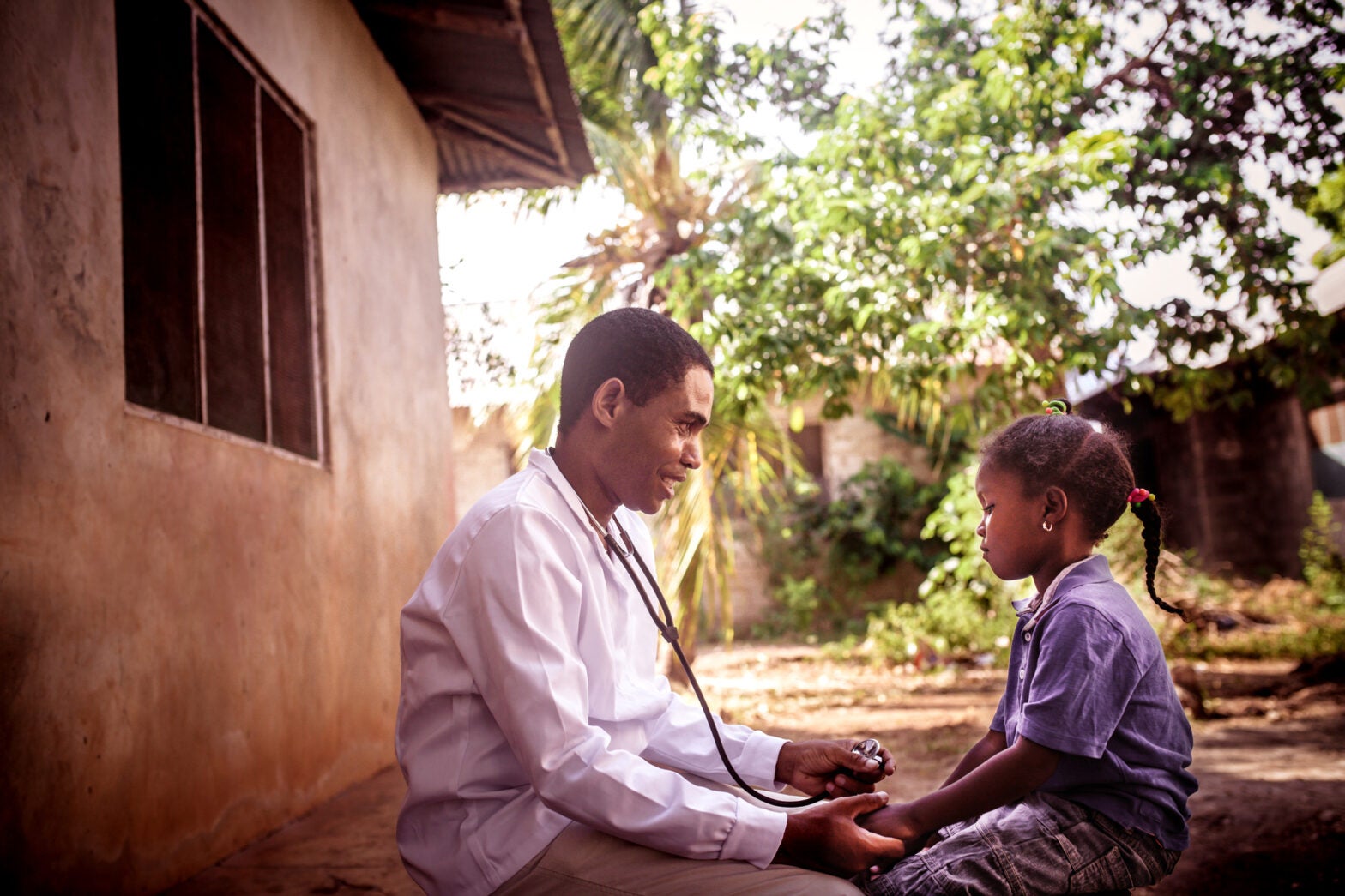A community health center in Nepal is so remote that the nearest road is more than a day’s journey away. Telephone quality is extremely poor. While the center’s two clinicians do have mobile phones, the devices must be charged by solar power. More than 2,000 families rely on the health center for their medical needs.
Despite the geographic and financial obstacles, the Nepal clinicians have access to the same evidence-based medical and health information available to clinicians at large urban medical centers. That is because Ariadne Labs’ Better Evidence Program has facilitated free access to UpToDate®, a digital, evidence-based clinical decision support tool.
Since 2009, Better Evidence has provided the health workforce in low-resource settings with access to digital tools to ensure they integrate the latest evidence into their decision making to improve health outcomes.
Better Evidence recently marked an important milestone: in partnership with Wolters Kluwer, the team has facilitated the donation of more than 100,000 UpToDate® subscriptions for frontline health care providers in 159 countries across the globe.
Many participants in Better Evidence say that such subscriptions have helped them provide the best care to patients. For example, a general practice doctor working in the Middle East said that through Better Evidence he has gained confidence knowing that “hundreds or maybe thousands of doctors (are) working day by day to review the articles and to make sure that everything is on a straight line of dignity and accuracy.” He knows he is making the best possible decisions with the support of the tools.
For medical students and clinicians in high-resource countries, access to an evidence-based, online clinical decision support tool may seem second nature. But for those in low-resource settings, accessing the latest information is more challenging. Such resources can be costly and, for many clinicians or medical institutions, that cost can be a major barrier. Better Evidence has helped remove that cost barrier and is now exploring ways to build a culture of use, such as reinforcing the habit of checking the most recent clinical evidence. The team is sharing testimony from users about its impact and utility, tips to fit the tool into the daily workflow, and other stories to show users they are part of a growing movement.
“I frequently need the assistance of UpToDate® in drug dosages, quick review for electrolyte imbalance management, emergencies during dialysis, management of glomerulonephritis and various other issues being faced in daily OPDs and ward rounds,” said a Pakistan physician. “Working in a non profitable organization and being underpaid it’s already very difficult to make our ends meet, which makes it impossible to get the paid subscription. UpToDate is very handy and provides all the information needed.”
Those 100,000 UpToDate subscriptions serve health providers ranging from those in Africa, to those on the small Pacific island of Naru, to those in Poland where the health system is struggling to cope with the influx of Ukrainian refugees.
A nurse in Malawi, who manages women’s health programs said, “UpToDate gives me the confidence to build a teaching structure with evidenced based information in the correct context. In Malawi we have very few resources and I am constantly trying to get more up to date material to the country but until then this resource is at the tip of my fingers.”
Research shows the failure to deliver the care that we know how to deliver causes more harm than lack of access to care. By working closely with partners, Better Evidence aims to ensure current and future health care providers and leaders around the world have access to the best evidence-based digital tools. The result is better medical care for all.



